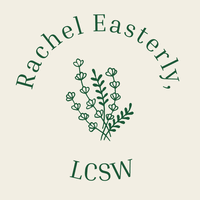
Frequently Asked Questions
How do I find the right therapist for me in NYC? Who is relational psychotherapy a good fit for?
When choosing a therapist, consider speaking with a few therapists with different modalities to find the right fit. Interpersonal and attachment trauma is well-served by relational therapy. Relational psychotherapy is also a good fit for patients struggling with repetitive or compulsive behaviors that you can’t figure out on a conscious level; perhaps you are aware that you are choosing the wrong relationships for you, repeating self-sabotaging behaviors, and can think of reasons why, but can’t stop.
We also choose therapists based on subtle factors related to our own histories, which is known as transference; for example, you may feel uncomfortable speaking with an older therapist, or find that it usefully brings up frustrations and emotions about a parent. A therapist closer to your age may elicit meaningful struggles with siblings, competition/comparison, and social difficulties. A quiet therapist may bring up social anxiety, while a talkative therapist may remind you of times you felt not listened to. The right therapist will not be offended but be interested in hearing all of these feelings; therapy is not a place for people-pleasing. Some clients find it useful to find a therapist who has lived experience of their identities, such as LGBTQIA+ identity, cultural/religious backgrounds, parenthood or disability. At the bare minimum, the right therapist should be empathetic, receptive to feedback, able to remember what you tell them and to acknowledge missteps. Therapists should also be committed to ongoing education, training and supervision, as is lovingly depicted by Dr. Orna Guralnik in Couples Therapy.
Is virtual or in person therapy more effective?
Virtual therapy has expanded access to therapy for many clients who otherwise would be unable to attend appointments; for this reason, telehealth can be useful for patients with mobility challenges, family therapy with distant relatives, and parents with busy caregiving schedules.
While technology has expanded access to treatment, therapy also has a role in resisting the influence of technology in our lives. Therapy may be one of the only times that we completely put down our phones and focus on conversation. Research substantiates that on video calls, we are more likely to overcompensate with our voices and expressions to be understood and heard; therapy should be a time of inner awareness and reflection without the extra social effort required in other areas of our lives.
Psychodynamic or analytic therapy, in particular, is focused on deep thought, vivid experiences of memories, and somatically accessing our feelings and emotions, a state of being that technology constantly interrupts in our day-to-day lives. For interpersonal concerns, such as couples therapy, traumatic histories, grief, and somatic complaints like pain, in person therapy may be uniquely useful. If virtual therapy is needed, careful consideration should be given to confidentiality, grounding your physical presence in the room you’re in, and nonverbal cues.
Do you take insurance? Why don’t all therapists take insurance in-network?
My practice is out-of-network to facilitate in-between session care, ongoing training, maintaining in-person availability, confidentiality and greater freedom for treatment decisions. Many therapists have found that out-of-network therapy allows for more sustainable individualized care. For out-of-network reimbursement assistance, many patients find Reimbursify useful.
Who is relational psychotherapy not a good fit for?
Relational psychotherapy is a good fit for any patient who is interested in pursuing it! Patients benefit most when they commit to regular treatment. However, some patients benefit from specialized treatment for specific conditions, either adjunctively or primarily. EMDR is wonderful for trauma re-processing and can be done adjunctively to talk therapy or as a primary method of treatment. Exposure and response prevention is first-line treatment for OCD behaviors and compulsions. I am happy to provide referrals to local providers.
Where can I obtain lower cost or free therapy in NYC?
The best low-cost/free therapy is often affiliated with training institutions committed to ongoing education and supervision. Psychoanalytic institutes offer low cost or free therapy by therapists obtaining postgraduate training.
